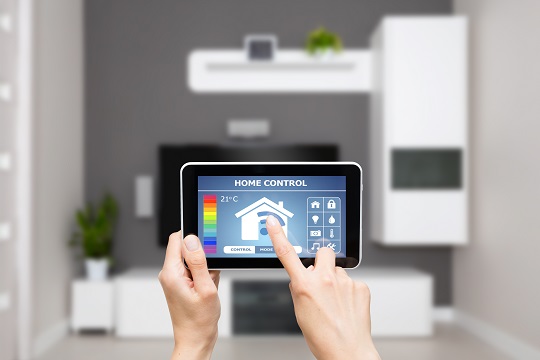The Smart Home Insurance Market: Are You Ready to Compete?

Smart homes are getting smarter. Equipped with voice control, they can follow spoken directions. With connected fridges, they can make suggestions about dinner. With smart utilities, they can optimize both comfort and efficiency. Soon, they may recognize their homeowners by their heartbeat.
What does all of this mean for personal lines insurers? “Technologies like IoT and insurance telematics provide huge opportunity for the insurers to improve their products and the way they interact with their customers, and many insurance companies have already started to experiment,” said Johan den Haan at IoT Agenda. “However, a huge shift in mindset is needed to be able to reap the benefits of these new technologies.”
A huge shift in mindset is needed
The obvious benefit of the connected home is in its reactive systems: a smoke detector senses smoke, then raises an alarm. Crisis averted. But to stop there would be to stop short. Insurers can capitalize on IoT data to detect problems before they turn into damages, taking a predictive approach to prevent losses. If you realize there’s a leak, you can stop it before it turns into a loss.
“As sensors and connected devices proliferate inside the … home, they will generate a huge amount of data, leading to better decision making across the industry,” Haan said.
There is a flip side. Last spring, PwC said that almost half of insurers worry about losing up to 20 percent of their business to standalone FinTech (financial technology) companies over the next five years. According to Business Insider, these startups, also known as insurtechs, are collecting data from a wider pool of sources, using sophisticated analytics to understand it, customizing flexible pricing plans based on granular data, and reducing the need for agents through automated advice.
Once again, we’re looking at the two-sided coin of potential and disruption. How can insurers maximize one, and mitigate the other?
Three ways insurers are capitalizing on connected homes
- Go deep in IoT. Insurers can use connectivity to build a closer relationship with customers, get insights into their behavior, and make better decisions about underwriting and pricing, said the Financial Times.
- Integrate yourself as a service. About a month ago, Grange Insurance launched its own “insurance skill” on the Alexa Voice Service, which means users can ask Alexa their insurance questions now too.
- Partner with tech. Jessica Ekholm at Gartner said a growing number of insurers are partnering with connected home providers. The data they gain through such a partnership is predictive gold.
Recently, McKinsey published an infographic on the state of connected homes in 2017. “The vision of the connected home is finally beginning to come together,” it said. It’s time for a coordinated response from insurers to come together, too.
The right insurance software is an obvious requirement. Insurers need systems that easily adapt to changing business rules. We can help with that. Request a demo to learn more.
